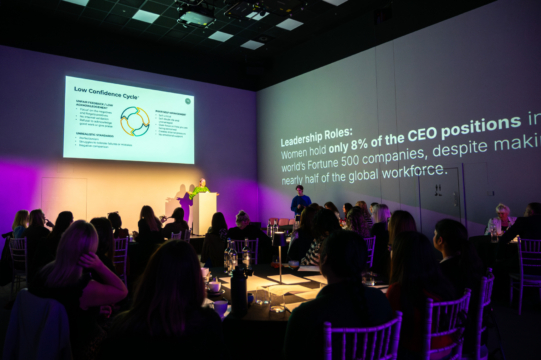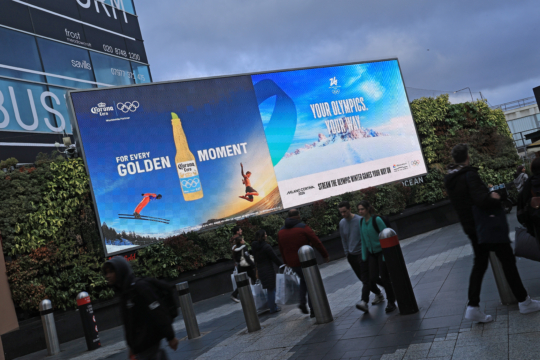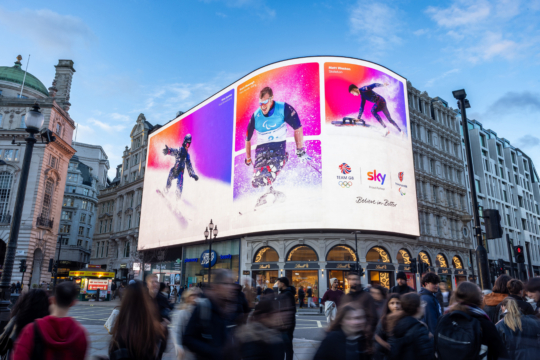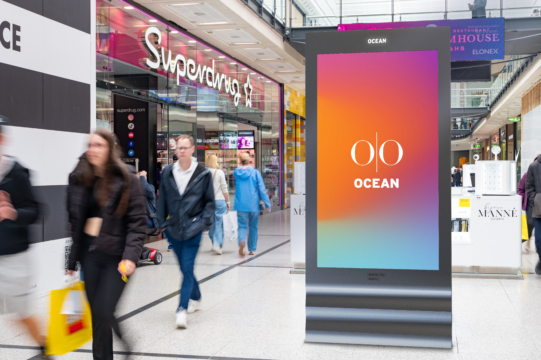
This week, Simon English City Editor of the London Evening Standard interviewed our CEO Tim Bleakley about the resurgence of advertising as retail, entertainment and hospitality come roaring back. Here’s the Q&A in full.
The easiest thing to have done when London was sent into lockdown would have been for Tim Bleakley to turn off the digital screen at Piccadilly Circus and thirty other sites around the capital. He didn’t. Instead Ocean Outdoor, his London-listed advertising business, got on the front foot and set some of the most iconic images of the pandemic as beacons of hope and projected them to the nation. The company did the same on the death of Prince Philip. Now the Company is poised to reap the benefits of London’s boom as the retail, entertainment and food industries come roaring back. Simon English caught up with advertising’s leading light…
ES: Tim, tough year right?
TB: We have a policy at Ocean Outdoor of not looking in the rear-view mirror. It’s all about what’s in front of us. Of course, as lockdown happened everyone was into uncharted territory. Advertisers pulled spend rapidly and from the outside looking in, anyone would think that the Company would be wiped off the face of the earth and an outdoor advertising business would be dead in the water.
ES: And were you?
TB: No, but it was tough times. We had just acquired our Nordic and Dutch businesses but we had no leverage and could weather the pandemic well. I remember the team meetings where we brainstormed what to do. We simply couldn’t turn off the screens and go dark on the nation. That was never an option we considered. So we got creative.
ES: This is where the iconic images came from?
TB: Our Marketing Manager actually came up with the suggestion to project the Queen and Captain Sir Tom Moore and to use the digital advertising screens, particularly the Piccadilly Lights, as messaging boards, something we did in partnership with Landsec. After all, what’s an advertising screen for? It’s a delivery mechanism for messages. We got in touch with the Palace and before we knew it, we had it live. I think those images will be lasting memories of a difficult time in the country’s history. We’re very proud of those.
ES: So advertising can be a source for good…
TB: Definitely. We had a responsibility to be the conduits for communicating vital messages and we had the creativity and gumption to make it happen. We also implemented an idea from our Dutch acquisition to support SMEs and gave away £18m of free advertising. We did everything we could to support and use the means at our disposal for the good of communities and the wider nation.
ES: And looking forward, what’s the mood?
TB: Advertisers came back once the vaccine roll-out and a clear pathway out of lockdown was announced. That created surety and allowed businesses to plan campaigns. It’s clear that commerce is wanting to tap into the euphoria and the pent-up demand that’s out there. London will come first. Theatres will be back – last year nearly 34m theatre trips didn’t happen. Retail will roar. We’ve taken our first blockbuster film booking. But this time it’s different as everyone is coming out of lockdown at the same time. There’s a preparedness and it’s actually quite exciting times.
ES: But will Londoner’s habits be irreversibly changed?
TB: Yes and no. Commuting will be a different experience. Buying habits will be altered. Overall spend per shop will increase – we definitely saw that after the last lockdown. People will maximise their time in the capital with a mix of shopping, entertainment and dining. Brands will be seeking to capitalise on behavioural changes and both immersive and interactive technology will win out.
ES: How does that manifest?
TB: If you take the Piccadilly Lights, the most iconic brand location in the world, we have just implemented ‘3D Forced Perspective’ technology, which we used to launch the Sony Playstation. It’s deeply immersive and creates an incredible effect of depth and reality that is truly breathtaking. Advertising needs to be impactful outdoors and the forward-looking brands are all playing in this space. It’s all about drama, execution, visual engagement and memorability.
ES: Are Londoners more in tune with advertising now?
TB: There’s definitely a heightened awareness. People are more in tune with what’s being displayed to them. They notice more. They take the time to stop and understand. We’ve seen some brands that had, say, a 10% share of a market, now enjoying 30% and instead of sitting back thinking that they will ride this wave forever, they are actively thinking of how to maintain or even increase their dominance. That means we could easily see brand wars emerging again as advertisers start vying for consumer recognition. London will be a key battleground.
ES: So London is bouncing back?
TB: I’m more confident now after seeing the vaccine roll-out be so effective and the government putting forward a clear roadmap out of lockdown. You can feel it in the air. Things are changing. Advertisers have picked it up. London is ready for the boom.





